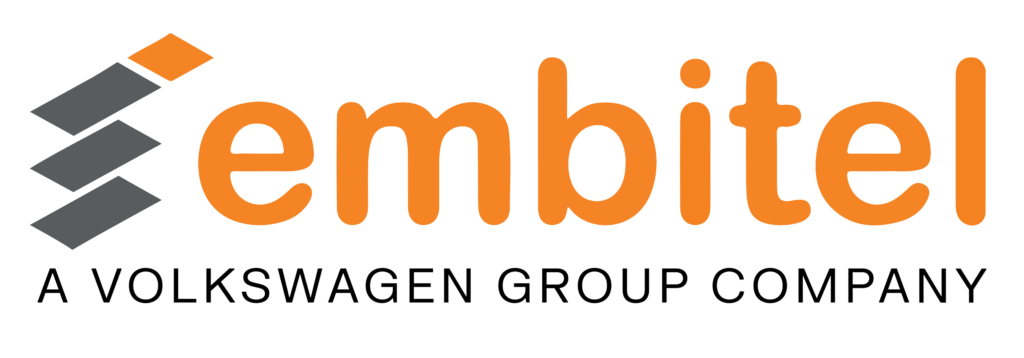Frequently Asked Question & Answers
- What is a marketplace?
- What is an ecommerce platform?
- What is a payment gateway?
- What is Magento?
- What is Hybris?
- What is multichannel retail?
- What is omnichannel retail?
- What is CMS?
- What is SLA?
- What is Swift?
- What is Java?
- What is a plug in?
- What is HTTPS?
- What is enterprise software?
- What is Software as a Service?
- What is Platform as a Service?
- What is Infrastructure as a Service?
- What is ERP?
- What is CRM?
- What is cross-selling?
- What is information architecture?
- What is an API?
- What is WMS?
- What is VAR?
- What is conversion rate?
- What is a website session?
- What is bounce rate?
- What is exit rate?
An ecommerce marketplace, or an online marketplace, is an ecommerce website listing products or services from multiple third-party vendors, while the transactions are managed by the operator of the marketplace.
Market places could be B2B or B2C, and make online sales for both, large and small sellers, efficient and affordable. Some of the notable marketplaces globally include eBay, Amazon, Alibaba, and Souq.
Ecommerce platforms are software solutions used to build virtual or online storefronts. Ecommerce businesses may be dependent on the webstore for all their sales, while other businesses incorporate online stores into their business strategy, which also includes brick-and-mortar stores.
Some of the leading ecommerce platforms are Hybris, Magento, Shopify, WooCommerce, etc.
A payment gateway is a software that facilitates an exchange of transaction-related information on websites and mobile applications. A payment gateway may be provided by a bank of specialized payment gateway service provider.
It is imperative for ecommerce businesses to integrate a robust payment gateway to ensure security. Among the popular payment gateway providers are PayPal, PayU, and 2CheckOut.
Magento is one of the most popular ecommerce platforms in the world. Magento is a customizable and scalable software that can is used by ecommerce businesses to define their look, content and functionality of the online store.
Magento announced an upgraded version named Magento 2.0 in 2015 which is available in Community and Enterprise editions.
SAP Hybris is omnichannel software for B2B and B2C commerce. Hybris is an enterprise-level ecommerce platform that positions itself and geared towards customer engagement.
Hybris has consistently emerged as a ‘leader’ in the annual Gartner Magic Quadrant for digital commerce for its rich functionality, growth and vision, and ability to act as an accelerator.
Multichannel retail is practice of using a variety of channels for sale of products and services. For instance, products may be available in an exclusive brand outlet, departmental stores, through mail order catalogues, and on a website.
The purpose of multichannel retail is to expand reach, build brand identity and foster loyalty among customers.
A step ahead of multichannel, omnichannel retail or omnichannel ecommerce aims at delivering a personal and continued shopping experience for customers across channels and mediums. This means integration on the back as well as front ends to ensure a connected experience across mediums.
Omnichannel ecommerce allows retailers to deliver a personalized shopping experience online and offline, and offers exemplary convenience to customers.
CMS, or Content Management System, is a software application used to create, edit and manage digital content. A CMS allows users to work with the content and publish it easily, without much coding or affecting the rest of the website.
Popular CMS used in website development include WordPress, WebEx Panel, Drupal and Google Search Appliance.
An SLA, or Service Level Agreement, is a contract between a service provider and customer. The SLA defines terms of the agreement between the two parties such as, but not limited to, a thorough description of the services to be provided, the timeline, reliability and performance standards. The SLA will also include details of exclusions and penalties.
A software development company will enter into an SLA with its clients to ensure transparency and adherence.
Swift is Apple’s latest programming language for development of iOS and OS X. It is backed by Apple’s Cocoa and Cocoa Touch frameworks, and enables development for all Apple devices.
The highlights of Swift are its resilience, safe programming patterns and yet performs at a remarkable speed.
Java is one of the most popular programming languages for development and delivery of content on the web. Developed as early as 1991, Java still remains common is now also the preferred language for Android app development and the Internet of Things.
Java is easy to use, allows creation of re-useable code and it object-oriented.
A plug is a piece of software added to a program in order to enable the program to perform additional features. Most high-quality programs support plug ins to enable customization by users.
Popular Magento ecommerce plug ins include Shipworks (to facilitate shipping processes), and Ajax cart (for ‘add to cart’ and ‘add to wishlist’ features). Mirakl Marketplace and Adobe Analytics are well-known hybris plug ins.
HTTPS is a more secure version of HTTP, a protocol that allows communication between a web server and browser. HTTPS (the ‘S’ stands for secure) encrypts and decrypts all data being sent to and from the server. This ensures security, especially in for sensitive information like payment information.
HTTPS certification builds trust and all reliable ecommerce websites have it.
Enterprise software is built to suit the needs of organizations, and it acts as a company-wide solution, meaning that it will available for all of the company’s sites. Enterprise software comes with a host of features, is customizable and requires professional expertise to develop.
Hybris is categorized as an enterprise-class ecommerce platform, and Magento Enterprise Edition is also available.
Software as a Service is involves the distribution and delivery of a software as an application over the internet. The software is hosted remotely, and the user pays as per subscription. The benefit of SaaS is that it allows business to focus on operations instead of technology.
In ecommerce, the richness of inbuilt features and easy integration makes SaaS suitable for SMBs. Few popular ecommerce SaaS platforms are Shopify, Volusion, BigCommerce.
The Platform as a Service model refers to the delivery on an application over the internet where a cloud services provider gives the platform (the software and hardware) to users as a service. These tools are hosted on the providers cloud and are simply accessed via the internet by users.
In ecommerce, PaaS frees business owners from the responsibilities of owning servers and software maintenance. Leading PaaS providers include Magento and Hybris.
Almost self-explanatory, IaaS is the provision of computing infrastructure such as servers and storage to users. Unlike PaaS and SaaS, the operational platform, and consequently no features, are provided in the IaaS model.
The Infrastructure as a Service model is a highly scalable program with wide scope for flexibility in management.
ERP stands for Enterprise Resource Planning is business process management software to manage and automate core business processes. ERP enables the flow of information to allow business owners/managers to make data-driven decisions.
It is important for businesses to integrate the ERP with their ecommerce platform to improve efficiency in operations.
Customer Relationship Management software, or CRM software, is used to manage the various aspects of a business-customer relationship. CRM software makes it possible to collect data from interaction with customers across channels and touchpoints, and helps in improving the customer relationship and retention.
CRM integration with the ecommerce platform enables tracking of customer behavior online, which helps improve business performance.
A practice designed to boost sales, cross-selling involves encouraging customers to purchase products/services related to the ones already purchased. For instance, customers purchasing a digital camera are likely to purchase a USB cable.
A popular way ecommerce websites use cross-selling is through a panel on the product page called ‘Customers who purchased this also bought…’ or ‘Special offers’ panel showcasing related accessories.
Information architecture, or IA, of a website is about the organization and structuring of a website to make it useable and share complete information. This includes creating categories and labelling them, defining the structure, navigation and user flow, integration of key functions such as search, etc.
A well-designed ecommerce website information architecture carries much value not just for UX, but also aids SEO ranking and performance.
An API, or Application Programming Interface, is a set of protocols, tools and routines used to build software applications, or allow software programs to communicate with each other. APIs act as building blocks for developers, facilitating good and speedy development.
There are a variety of APIs available that are helpful for retail ecommerce for purposes such as website search, shipping , mobile app development, etc.
Warehouse Management System (WMS) is a software application used in warehouses to track inventory status and location. A WMS aids planning, management, and dispatch of resources, and can be used for a single warehouse or a network of multiple warehouses.
An ecommerce business needs to integrate its ecommerce platform with the WMS to enjoy benefits such as reduced fulfilment time, streamlined processes and efficient operations.
A VAR, or Value-Added Reseller, sells a product, like a software or hardware, with added features or a service. A VAR goes beyond order-fulfilment of the product being sold to offer a complete solution.
As an SAP VAR, Embitel is not only authorized to sell the SAP Hybris license but also provide development and implementation services on Hybris platform.
Conversion rate for ecommerce websites is that percent of visitors to the website who take a desired action. In this case, the conversion rate could be measured in two metrics: those who visit to those who add a product to the basket, and those who have added a product to basket to those who check out.
Conversion rate is one of the metrics which ecommerce businesses use to assess performance, and analyze make improvements
A website session refers to the activity or interactions between a user and the server in a specified period of time. This time slot is determined by the website administrator.
Session analysis is important for ecommerce websites as it gives insights into the interest and intent of the visitor, and gives information into the overall performance of the website.
Bounce rate refers to the segment of website visitors who leave the website after a single page visit. i.e. they do not travel to any other pages on the website.
A high bounce rate is indicative of the lack of meaningful interaction between the visitor and the website—in the case of ecommerce, the visitor hasn’t proceeded to the purchase page, nor is he browsing other pages. All ecommerce websites aim to lower their website bounce rate.
Exit rate is the percent of visitors to your website who actively navigate away from it, after they may or may not have browsed other pages on the site. So it is possible for a page to have a high bounce rate (a single page session, with no other interaction with the website), and a high exit rate (the number of people leaving the site from the page is high).
High exit rates on ecommerce website pages such as product pages or the shopping cart should be investigated for factors such as lack of security, poor navigation, etc.



